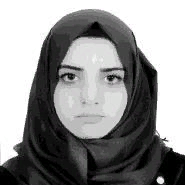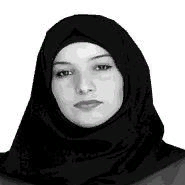International Journal of Image, Graphics and Signal Processing (IJIGSP)
IJIGSP Vol. 11, No. 3, 8 Mar. 2019
Cover page and Table of Contents: PDF (size: 1565KB)
Improving the Sharpness of Digital Image Using an Amended Unsharp Mask Filter
Full Text (PDF, 1565KB), PP.1-9
Views: 0 Downloads: 0
Author(s)
Index Terms
Unsharp mask, Image sharpening, Acutance, Image processing
Abstract
Many of the existing imaging systems produce images with blurry appearance due to various existing limitations. Thus, a proper sharpening technique is usually used to increase the acutance of the obtained images. The unsharp mask filter is a well-known sharpening technique that is used to recover acceptable quality results from their blurry counterparts. However, this filter often introduces an overshoot effect, which is an undesirable effect that makes the recovered edges appear with visible white shades around them. In this article, an amended unsharp mask filter is developed to sharpen different digital images without introducing the overshoot effect. In the developed filter, the image is smoothed by using the traditional bilateral filter and then blurred using a modified Butterworth filter instead of blurring it with a Gaussian low-pass filter only as in the traditional unsharp mask filter. Using this approach allowed to eliminate the overshoot effect and to recover better quality results. The proposed filter is assessed by using two modern image quality assessment metrics, real and synthetic-blurred images, and is compared with three renowned image sharpening techniques. Various experiments and comparisons showed that the proposed filter produced promising results with both real and synthetic-blurred images.
Cite This Paper
Zohair Al-Ameen, Alaa Muttar, Ghofran Al-Badrani, " Improving the Sharpness of Digital Image Using an Amended Unsharp Mask Filter", International Journal of Image, Graphics and Signal Processing(IJIGSP), Vol.11, No.3, pp. 1-9, 2019. DOI: 10.5815/ijigsp.2019.03.01
Reference
[1]M. Banham and A. Katsaggelos, "Digital image restoration", IEEE Signal Processing Magazine, vol. 14, no. 2, pp. 24-41, 1997.
[2]K. Kim and Y. Kwon, "Single-image super-resolution using sparse regression and natural image prior", IEEE Transactions on Pattern Analysis and Machine Intelligence, vol. 32, no. 6, pp. 1127-1133, 2010.
[3]M. Wilscy and M. Nair, "A new method for sharpening color images using fuzzy approach", Lecture Notes in Computer Science, vol. 5112, pp. 65-74, 2008.
[4]G. Webb, "Sharpness issues in colour printing", The Journal of Photographic Science, vol. 38, no. 4-5, pp. 173-176, 1989.
[5]J. Schavemaker, M. Reinders, J. Gerbrands and E. Backer, "Image sharpening by morphological filtering", Pattern Recognition, vol. 33, no. 6, pp. 997-1012, 2000.
[6]A. Carasso, "The APEX method in image sharpening and the use of low exponent Lévy stable laws", SIAM Journal on Applied Mathematics, vol. 63, no. 2, pp. 593-618, 2003.
[7]S. Kim and J. Allebach, "Optimal unsharp mask for image sharpening and noise removal", Journal of Electronic Imaging, vol. 14, no. 2, pp. 1-13, 2005.
[8]M. Millán and E. Valencia, "Color image sharpening inspired by human vision models", Applied Optics, vol. 45, no. 29, pp. 7684-7697, 2006.
[9]S. Fu, Q. Ruan, W. Wang, F. Gao and H. Cheng, "A feature-dependent fuzzy bidirectional flow for adaptive image sharpening", Neurocomputing, vol. 70, no. 4-6, pp. 883-895, 2007.
[10]S. Fu, Q. Ruan and W. Wang, "A shock-diffusion equation with local coupling term for image sharpening", Journal of Optoelectronics Laser, vol. 18, no. 2, pp. 245-253, 2007.
[11]H. Ibrahim and N. Kong, "Image sharpening using sub-regions histogram equalization", IEEE Transactions on Consumer Electronics, vol. 55, no. 2, pp. 891-895, 2009.
[12]J. Calder, A. Mansouri and A. Yezzi, "Image sharpening via Sobolev gradient flows", SIAM Journal on Imaging Sciences, vol. 3, no. 4, pp. 981-1014, 2010.
[13]S. Skoneczny, "Nonlinear image sharpening in the HSV color space", Przeglad Elektrotechniczny (Electrotechnical Review), vol. 88, no. 2, pp. 140-144, 2012.
[14]V. Bezzubik, N. Belashenkov, G. Vdovin, N. Karmanovsky and O. Soloviev, "Multiscale differential method for digital image sharpening", Naučno-tehničeskij Vestnik Informacionnyh Tehnologij, vol. 14, no. 6, pp. 82-90, 2014.
[15]P. Zafeiridis, N. Papamarkos, S. Goumas and I. Seimenis, "A new sharpening technique for medical images using wavelets and image fusion", Journal of Engineering Science & Technology Review, vol. 9, no. 3, pp.187-200, 2016.
[16]A. Polesel, G. Ramponi and V. Mathews, "Image enhancement via adaptive unsharp masking", IEEE Transactions on Image Processing, vol. 9, no. 3, pp. 505-510, 2000.
[17]G. Cao, Y. Zhao, R. Ni and A. Kot, "Unsharp masking sharpening detection via overshoot artifacts analysis", IEEE Signal Processing Letters, vol. 18, no. 10, pp. 603-606, 2011.
[18]K. Panetta, Y. Zhou, S. Agaian and H. Jia, "Nonlinear unsharp masking for mammogram enhancement", IEEE Transactions on Information Technology in Biomedicine, vol. 15, no. 6, pp. 918-928, 2011.
[19]G. Deng, "A generalized unsharp masking algorithm", IEEE Transactions on Image Processing, vol. 20, no. 5, pp. 1249-1261, 2011.
[20]C. Yang, "Finest image sharpening by use of the modified mask filter dealing with highest spatial frequencies", Optik - International Journal for Light and Electron Optics, vol. 125, no. 8, pp. 1942-1944, 2014.
[21]Z. Wang, A. Bovik, H. Sheikh and E. Simoncelli, "Image quality assessment: from error visibility to structural similarity", IEEE Transactions on Image Processing, vol. 13, no. 4, pp. 600-612, 2004.
[22]H. Sheikh and A. Bovik, "Image information and visual quality", IEEE Transactions on Image Processing, vol. 15, no. 2, pp. 430-444, 2006.
[23]S. Smith and M. Brady, "SUSAN—a new approach to low level image processing", International Journal of Computer Vision, vol. 23, no.1, pp. 45-78, 1997.
[24]C. Tomasi and R. Manduchi, "Bilateral filtering for gray and color images", IEEE Sixth International Conference on Computer Vision, pp. 839-846, 1998.
[25]C. Zuo, Q. Chen, G. Gu and W. Qian, "New temporal high-pass filter nonuniformity correction based on bilateral filter", Optical Review, vol. 18, no. 2, pp. 197-202, 2011.
[26]A. Dogra and P. Bhalla, "Image sharpening by Gaussian and Butterworth high pass filter", Biomedical and Pharmacology Journal, vol. 7, no. 2, pp. 707-713, 2014.
[27]Y. Sadah, N. Al-Najdawi and S. Tedmori, "Exploiting hybrid methods for enhancing digital x-ray images", The International Arab Journal of Information Technology, vol. 10, no. 1, pp. 28-35, 2013.
[28]J. Clark, C. Wadhwani, K. Abramovitch, D. Rice and M. Kattadiyil, "Effect of image sharpening on radiographic image quality", The Journal of Prosthetic Dentistry, vol. 120, no. 6, pp. 927-933, 2018.
[29]J. Ye, Z. Shen, P. Behrani, F. Ding and Y. Shi, "Detecting USM image sharpening by using CNN", Signal Processing: Image Communication, vol. 68, pp. 258-264, 2018.
[30]F. Ding, G. Zhu, W. Dong and Y. Shi, "An efficient weak sharpening detection method for image forensics", Journal of Visual Communication and Image Representation, vol. 50, pp. 93-99, 2018.


